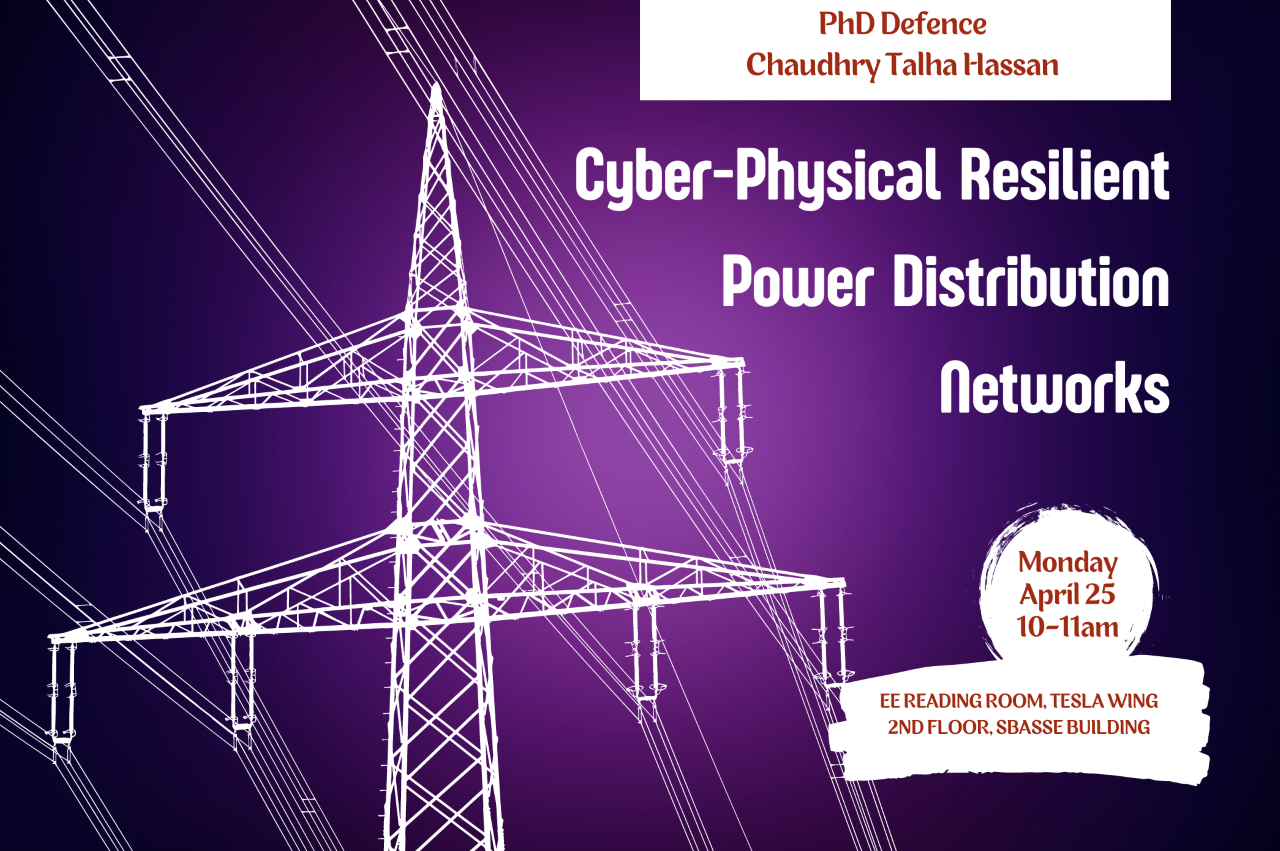
PhD Proposal Defence - Cyber-Physical Resilient Power Distribution Networks
Advancements in smart grid technologies have resulted in increased reliability of service for consumers. Although, faults and outages resulting in blackouts are inevitable, service is restored back to normal. Service restoration is a decision making and action actuating process (either executed centrally or distributively) in which the system operator executes a set of actions to minimize the impact of an outage on customers while maintaining stability and inter-operability of the grid.
In the literature, two main methodologies have been adopted to solve the load restoration problem. One approach considers it as a classical deterministic optimization problem with an objective to maximize (critical) load pickup incorporating several constraints. The other considers it as a multi-agent system (MAS) and restores the loads based on heuristics and agent behavioural modelling. Lack of standardization has limited the scope of communication technologies in smart grids, especially in the service restoration process. However, with the increasing installations of smart switches, tie-lines and sectionizers as well the deployment of new Distributed Energy Resources (DERs) an obvious but unexplored research area is examining the role of communication layer in realizing cyber-physical distribution systems. Agents can interact socially and cooperate to exchange sensory information and actions to restore loads over a communication layer. Also, there are new opportunities to consider Synchronous Generators or Back-up Generators (BUGs) as a source of providing black-start capability to grid-tied non-dispatchable inverters. In this way, the utility of BUGs has increased to harness power from non-dispatchable inverters rather than merely providing backup to local loads. The system operating conditions do not remain constant during the restoration period. This work aims to develop a cyber-physical framework for load restoration with intentional islanding (i.e Mirco-Grid Formation) and consideration of uncertainties in demand and renewable resources.
After a major blackout, the fault areas are isolated from the upstream network, where customers in the upstream are continued to be served from the main grid. Those in the downstream can either be served from main grid (after tie-line or sectionizer switching) or through several Micro-Grids (MGs-intentional islands). The challenge involved is ascertaining the span of the MGs based on the available generation and load within the MG, whilst keeping the grid stable, harnessing power from non-dispatchable DGs, determining the effect of delays in switching actions on stability and uncertainties associated with demand and generation.
Proposal Defence Committee
- Dr Tariq Jadoon (Supervisor)
- Prof Nauman Zaffar
- Dr Naveed ul Hassan
- Dr Hassan Abbas
- Dr Hassan Jalil
- Dr Raheel Zaffar
The motivation of the research is to provide a framework for a cyber-physical distribution systems with high penetration of DER. The research is conducted over a IEEE-123 node test feeder and results are presented to demonstrate the efficacy of the framework over real-world power distribution networks.

